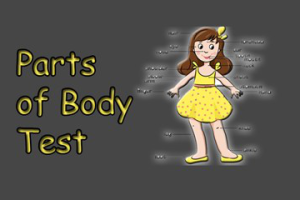
[vuh-jahy-nuh]
A vagina by any other name is still a vagina. Yesterday I was using a toothpick to pick some peanuts out of my teeth. My 4 year old grandson asked what I was doing and I told him. He said “I have peanuts in my penis – How did you get those peanuts in your teeth.” As it turns out his mother told him that his testicles were peanuts. – SMH.
Parents, do everyone a favor; address the body parts by their biological name.
Share it now!

I am a big fan of calling body parts (especially genitalia) and bodily functions by their correct names. But it’s tends to seem and sound weird when so few others do so.
I think a paragraph or two espousing why you think that this is beneficial would be very helpful.
AhaParenting.com wrote: “I think it’s really important that we teach kids accurate names for their body parts, both to avoid shame and to help them talk about it, if anyone tries to touch them inappropriately.”
What? You mean to tell me “coochie” and “thing” are not anatomically correct? Some parents don’t teach their children the correct names for their body parts because they have pet names for theirs (not me of course) or, when they were younger they used to …. A slightly relevant example: I was in the ladies room somewhere. I woman in her late thirties was talking to her mom. She asked if she (her mom), was doing the big job or the little job. She didn’t ask if she was defecating or urinating. She didn’t even use the #1 and #2. I agree that children should learn the correct terminology for their body parts. Every two-year old girl should be able to recite the three syllable word Vagina so when her three year old brother asks the question, she should be able to eloquently tell him how that body part is identified so he can ask his mom why he doesn’t have one. As wrong as I may be, I believe there is a time for kids to learn the appropriate jargon. Small children do a great job of pointing and when they can talk about it, they’ll definitely tell you what is up. In situations when it is hurtful or embarrassing, I believe a child using the medical terminology will not lessen the discomfort. Based on your post, you totally understood what he meant. Did you correct him or take the opportunity to explain the difference? Although it might have been confusing for the astute 4-year old, that would have been an ideal moment for grandma (an a-ha moment for him) to tell him that his peanuts were actually testicles, a rare form of nuts encased in a protective sac of skin and muscle called the scrotum. What is age appropriate?
Parenting Beyond Punishment wrote: “totally agree – call the body parts what they are. There is no shame in our bodies or the names of our body parts.”
JR, as always, your comments are very thought provoking. In terms of my grandson, I took the easy way out and called his mother. That brings up another point. If the child is living with his parents, should anyone else (grandparents included) take the liberty of changing the terminology that has been taught by the parents?
In terms of an appropriate age, receptive language always precedes expressive language. The child may not say the “V” word but he/she is very capable of understanding. So, my response is that we should never call it anything else and then we won’t have to re-teach.
And, I was just as surprised as you to learn that “coochie” was not the biological term.
As always, thanks for sharing.